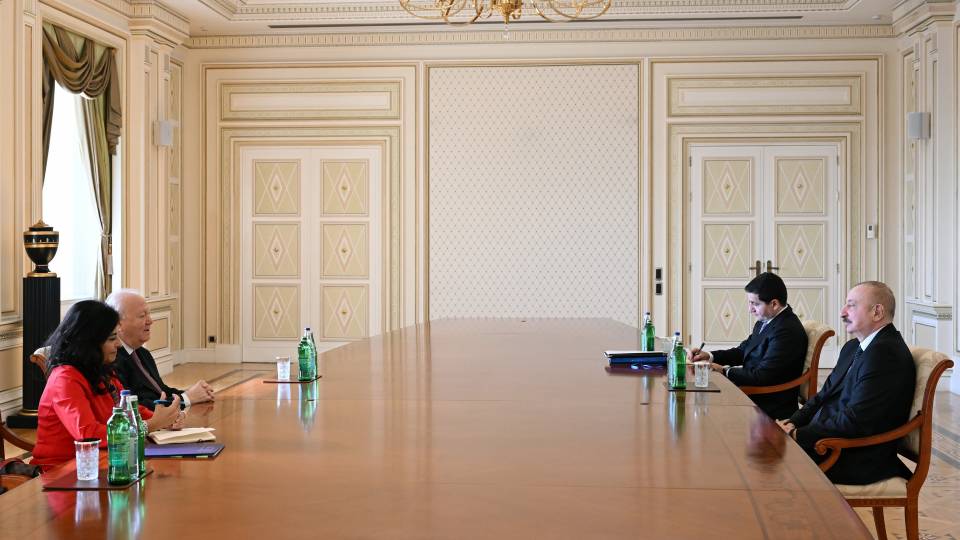18:00
Eurasia.net: Success of Hillary Clinton Trip to Baku Could Hinge on US Views on Karabakh
30 June 2010, 12:36
Eurasia.net
June 30, 2010
by Shahin Abbasov
US support for Azerbaijan in its Nagorno-Karabakh negotiations with Armenia will most likely prove the price for any agreements on other issues made during US Secretary of State Hillary Rodham Clinton’s July 4 visit to Baku, local analysts say.
Discussions about “how to move. . .forward” toward a resolution of the 22-year-long conflict over the breakaway region of Nagorno Karabakh is “one of the purposes” for Secretary of State Clinton’s trips to Azerbaijan and Armenia, Assistant Secretary of State Philip H. Gordon told a June 29 briefing.
On July 4, Clinton will travel from Baku on to Yerevan, where she will meet with Armenian President Serzh Sargsyan and Foreign Minister Edward Nalbandian to discuss the Karabakh negotiations and Armenia’s stalled rapprochment process with Turkey. She will continue on to Tbilisi on July 5.
Keeping the Karabakh conflict at the center of Clinton’s short trip to Baku is essential for Azerbaijan, commented Novruz Mammadov, head of the presidential administration’s foreign policy department.
“It has to be this way. Because our relations with the US have been strongly developing for many years in lots of areas; for example, energy and the fight against terrorism,” Mammadov said in a June 25 interview with Azadlig radio. “However, in the resolution of the Karabakh problem, our cooperation has not been successful so far. And I think that Hillary Clinton will pay special attention to it.”
Azerbaijan’s role as a transit hub for roughly a quarter of non-military supplies to Afghanistan is one strong incentive for Clinton to pay such special attention. That role was underlined by an earlier visit this month by US Defense Secretary Robert Gates. [For details, see the EurasiaNet.org archive.]
Baku-based political analyst Rasim Musabekov believes that Azerbaijan’s attitude toward further cooperation on Afghanistan could hinge on Clinton’s ability to show an open ear to Azerbaijani concerns about the Karabakh negotiations.
“I think that Hillary Clinton will need to persuade the Azerbaijani leadership that the US position in the Karabakh conflict is unbiased and does not support Armenian ambitions. This opinion [about Washington’s alleged pro-Armenia bias] grew stronger in Baku after the active US role in the Turkish-Armenian rapprochement process,” Musabekov said. [For details, see the EurasiaNet.org archive.]
After a recent unsuccessful meeting between President Aliyev and President Sargsyan in St. Petersburg, both Aliyev and Foreign Minister Elmar Mammadyarov have accused Yerevan of delaying the peace process. Repeat ceasefire violations that have left two Azerbaijani and four Armenian soldiers dead have added to the tensions.
At a June 23 press conference in Baku, Mammadyarov argued that Yerevan’s dawdling on the guidelines for a peace deal makes it “difficult to continue the talks . . . “
Mammadov also believes that the time has come for concrete results. “There were many meetings and talks so far. Five or six meetings [between Presidents Aliyev and Sargsyan] were held under the Russian president’s auspices. And there have to be results from all this activity. Clinton’s visit could play a significant role in this issue,” he said.
Rauf Mirgadirov, a political columnist for the Russian-language daily Zerkalo (The Mirror) believes, however, that Aliyev does not have much room left for maneuver on the issue of Karabakh or on reconciliation between Armenia and Azerbaijani ally Turkey.
“Aliyev clearly defined his position recently. If, at the beginning of the process, he said that normalization [of relations between Turkey and Armenia] should take place only after the liberation of all occupied regions around Nagorno Karabakh, in May he said that Baku could agree [to normalization] if the liberation process would only start,” Mirgadirov recalled. “I do not think bigger compromises are possible from his side now.”
If the US proves supportive on Karabakh, Baku is also likely to lobby for President Aliyev to receive an invitation to visit Washington, he added. “The government was really upset when Aliyev was not invited to the anti-nuclear summit in Washington in April,” Mirgadirov said.
Azerbaijan’s civil society, however, has different expectations for the Secretary of State’s visit. Several local human rights groups and individuals have sent letters to Clinton asking that she discuss human rights problems with the Azerbaijani government. They have also asked that she demand the release of imprisoned bloggers Emin Milli and Adnan Hajizade and journalist Eynulla Fatullayev. [For details, see the EurasiaNet.org archive.]
In a June 29 report, Council of Europe Human Rights Commissioner Thomas Hammarberg expressed similar concerns, asserting that “[f]reedom of expression is curtailed in Azerbaijan today – major improvements are needed.”
The government has agreed to let blogger Milli out of prison for three days to attend the funeral of his father, who recently died, APA news service reported on June 29. But major decisions on Azerbaijan’s media and human rights policies are not expected during Clinton’s trip, however.
Clinton, who has called for Milli and Hajizade’s release in the past, may “raise the issues of democracy, freedom of speech and the release of political prisoners” during her visit to Baku, predicted analyst Musabekov. But “if she arrives in Baku with empty hands on the Karabakh issue, then in the best scenario she would face polite indifference here on the other issues,” he said.
18:00
16:52
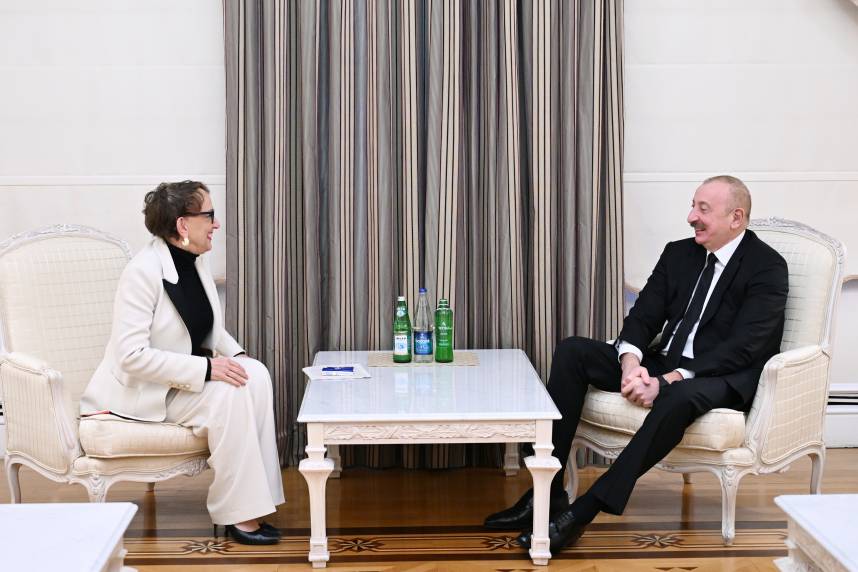
16:11
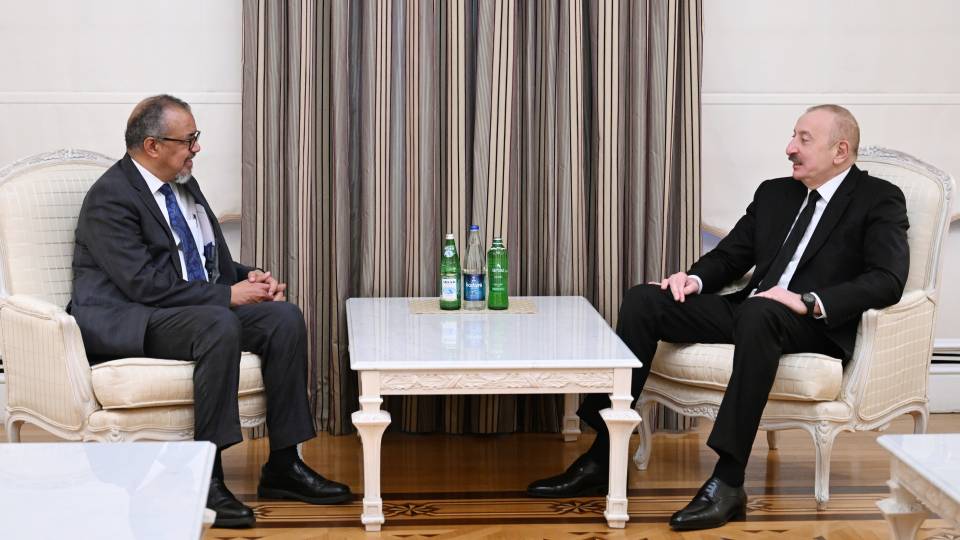
15:31
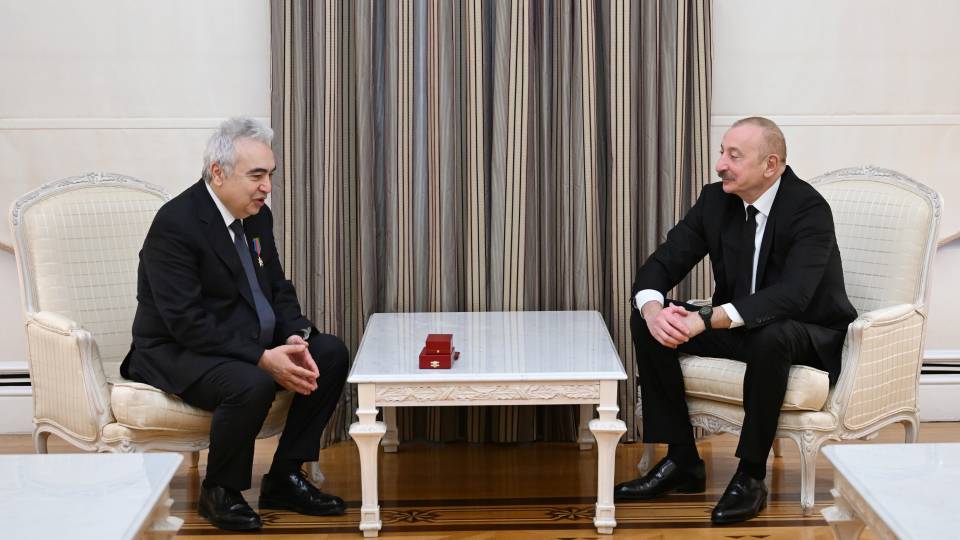
15:07
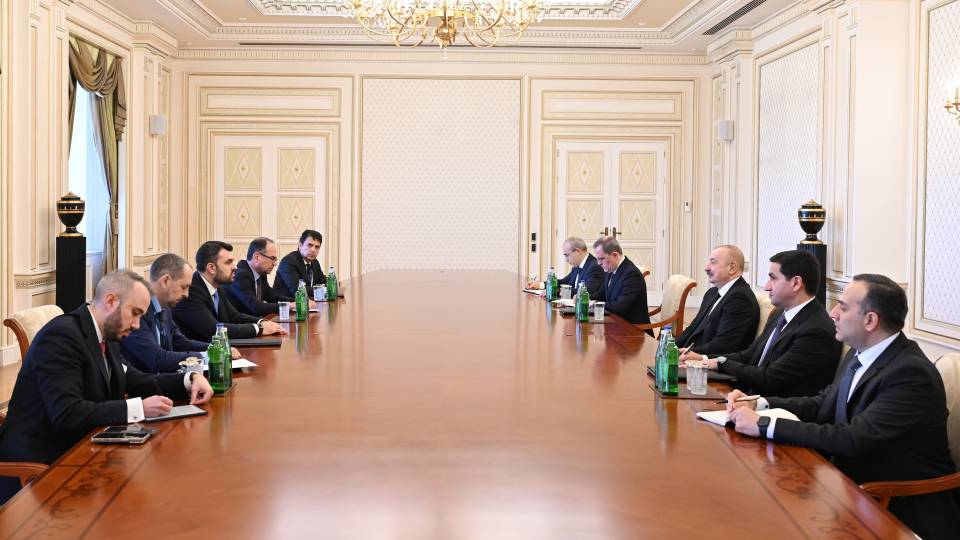
14:20
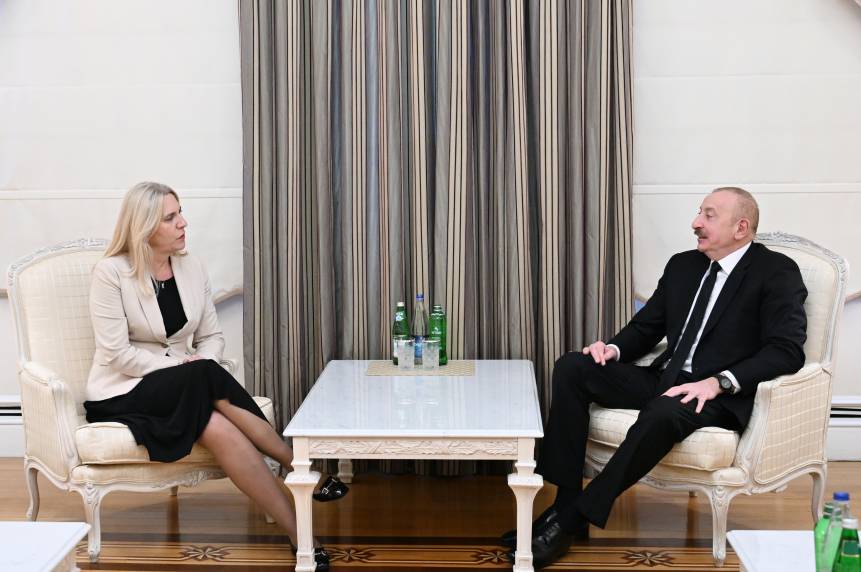
13:30
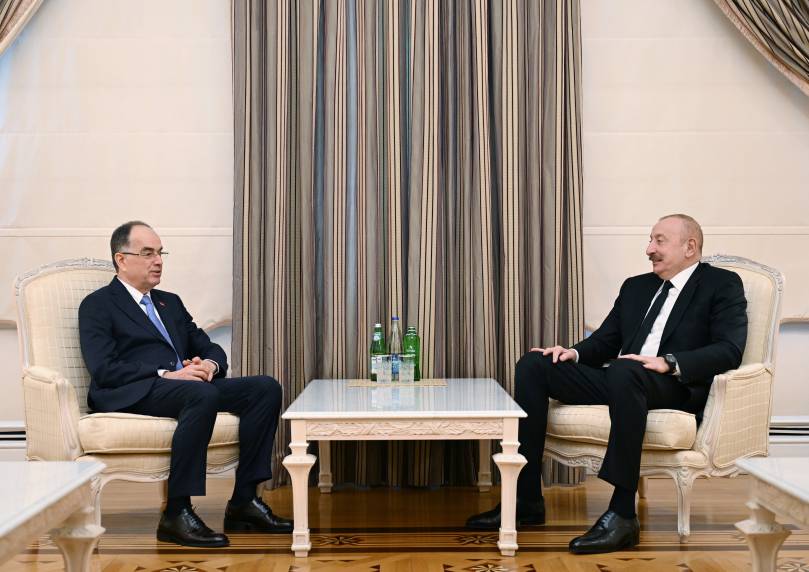
11:30
Your Holiness,
On my behalf and on behalf of the people of Azerbaijan, I convey to you and, through you, to all your co-religionists, my most sincere congratulations on the occasion of your Election Anniversary.
The current level of relations between Azerbaijan and...
13 March 2025, 11:3010:10
18:00
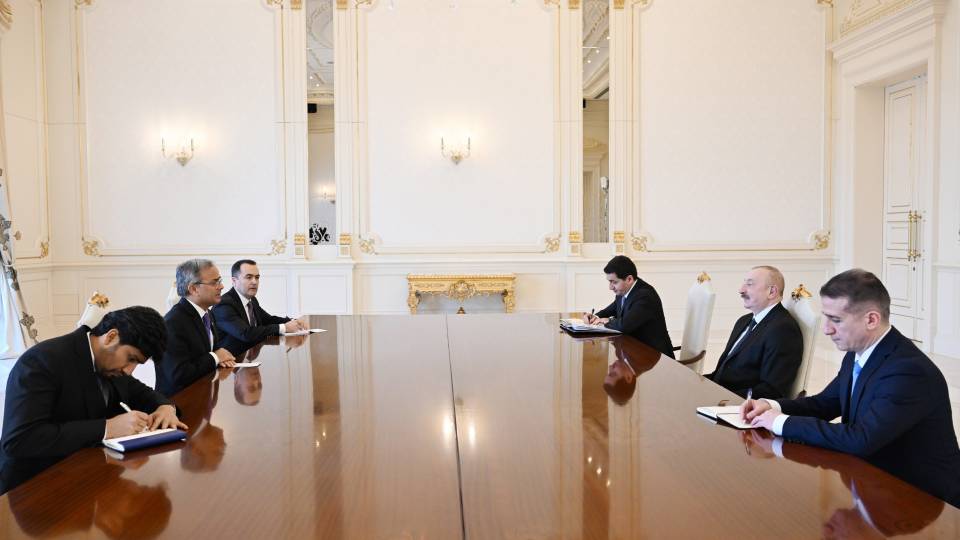
11:38
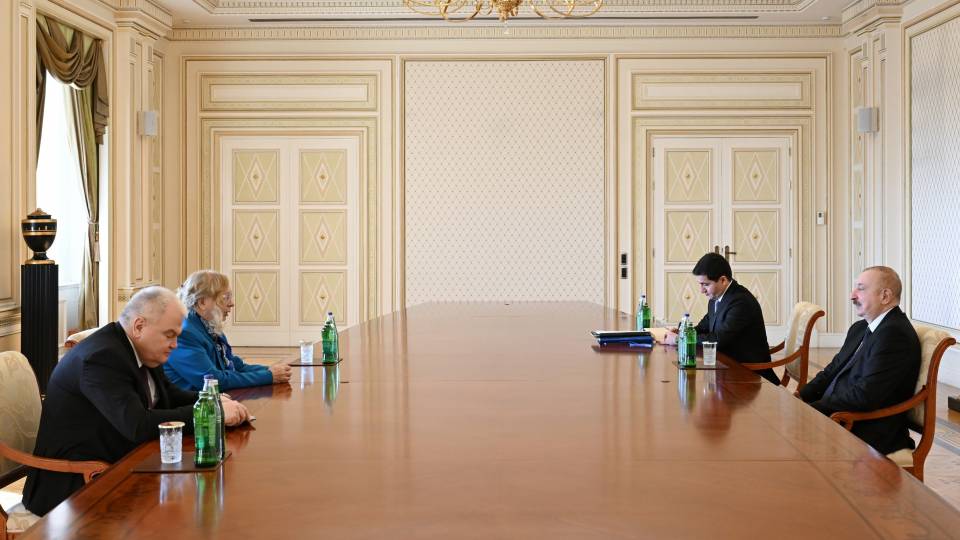
11:24
